Text
Women in Anthropology: GERTRUDE MARGARET LOWTHIAN BELL
As all fellow anthropologists are aware, humans are incredibly complex and oftentimes imperfect beings. Though Gertrude Bell had a complicated role in politics, she is an unquestionably important and a truly captivating female figure in academica and in anthropology.
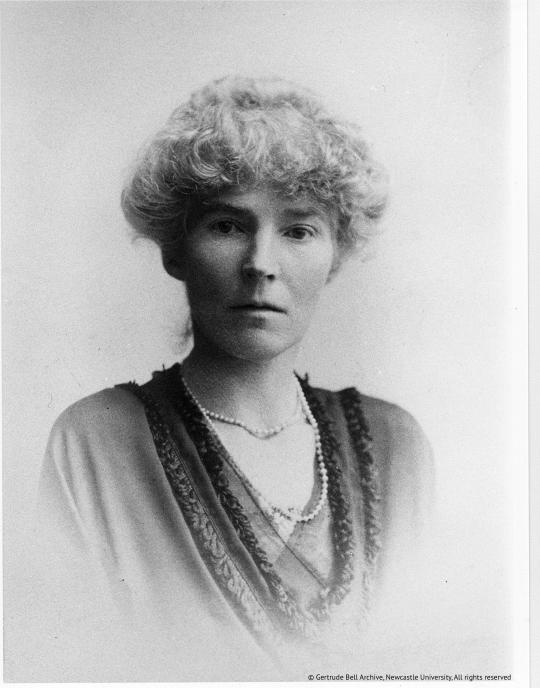
Gertrude Bell was born to a wealthy English family in Washington, England in 1868. During her education she specialized in history and was one of the first 2 women, alongside fellow historian Alice Greenwood, to graduate from the University of Oxford. It is important to note that while both women graduated with honors, Oxford did not award them with degrees and they were not recorded alongside their 9 male classmates.
Following University, she began her travels in Persia. She picked up extensive language skills and spoke German, Persian, French, Arabic, Italian, and several Ottomon languages. It was during this time of traveling throughout regions in the Middle East that she developed an interest in archaeology.
In 1907 she began work with archaeologists Sir William M. Ramsay within the Ottoman Empire (the modern-day region of South-central Turkey), on the site Binbirkilise (pictured below) (translated from Turkish as “thousand and one churches”). Through 1909 Bell also participated in archaeological recording and mapping of ruins in Syria, near the Upper East bank of the Euphrates, as well as the ruins of Ukhaidir in the city of Carchemish. In 1924 she completed her final archaeological field work with Edward Chiera in ancient Nuzi, Iraq where they excavated Assyrian clay tablets.
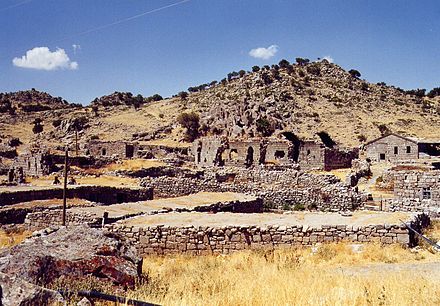
Bell also had an extensive political career, and her fluency in multiple languages allowed her to become an incredible asset to international British relations in regions such as Cairo, Egypt and in Iraq. She is also a notable witness to the Armenian genocide of 1915-1916 and contributed testimony that aided in spreading information about the atrocities committed. In 1921 she was apart of a British-led conference determining the future boundaries of Iraq (pictured below); this was only one chapter in a larger narrative of British imperialism in the Middle East
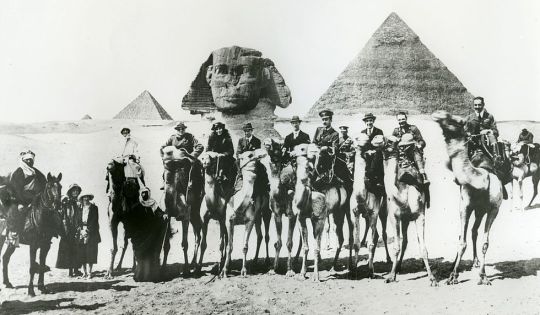
****CW/TW: Themes of suicide and substance abuse****
In the year of her death, Bell helped to establish the The Baghdad Archaeological Museum (now the Iraq Museum) in 1926. Her death came after a series of financial and health issues and the passing of her brother. She was determined to have taken an overdose of sleeping pills, and while it is officially unclear whether or not she intended to end her life, her mental health issues are still an important part of her story.

While Gertrude Bell’s success should be contextualized within her privileged position as a wealthy white woman, this should not diminish any of her accomplishments. She made significant contributions to archaeological research, and held her own in a political stage surrounded only by men. At the same time, she was of the late 19th and early 20th century era and likely did not think to check or understand her privilege and positions of power. Ultimately, her legacy, though complex, is that of a brilliant woman and a crucial figure within the discipline of archaeology.
Refs:
“Gertrude Bell”. Biography, 2021, https://www.biography.com/writer/gertrude-bell.
“Gertrude Bell - Wikipedia”. En.Wikipedia.Org, 2021, https://en.wikipedia.org/wiki/Gertrude_Bell.
Howell, Georgina. Gertrude Bell: Queen of the desert, shaper of nations. Farrar, Straus and Giroux, 2010.
“About The Museum | The Iraq Museum”. Theiraqmuseum.Com, 2021, https://www.theiraqmuseum.com/pages/about-the-museum.html.
“British Colonialism, Middle East | Encyclopedia.Com”. Encyclopedia.Com, 2021, https://www.encyclopedia.com/history/encyclopedias-almanacs-transcripts-and-maps/british-colonialism-middle-east
—————————————————————————
About the podcast: The I Dig It Podcast was created by Alyssa and Michaela in March of 2020. Our goal for this podcast was to provide archaeology enthusiasts with insight into the student perspective of navigating the world of academia and the job market for archaeology and anthropology. Guests on the podcast include people from all different parts of their career, including highschool, undergrad, grad school, post doc, and early career!
Where to Find Us:
Insta: https://www.instagram.com/idigitpodcast/
Twitter: https://twitter.com/IDigItPodcast
Discord: https://discord.gg/T7BPe36
ArchPodNet: https://www.archaeologypodcastnetwork.com/idigit
How to get involved: Sign up to be a guest or to be featured on our social media pages ➡️ https://linktr.ee/idigitpodcast
136 notes
·
View notes
Text
Women in Anthropology: MARGARET ALICE MURRAY
In the 100 years Margaret Murray was on this Earth she became a driving force for women in anthropology and in academia, earning the titles of archaeologst, Egyptologist, author, lecturer, Folkorist, and feminist.
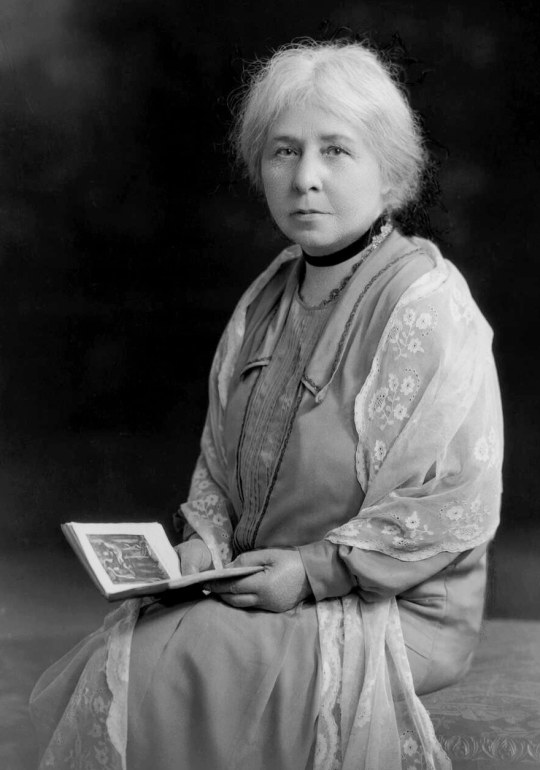
Murray was born to wealthy English parents in Calcutta, India in 1863. She spent her early years living in Britain and Germany before settling back in India as a nurse until 1887 when she moved to England and became a social worker.
She began attending the University College London (UCL) at the age of 31 in 1894 (proving that there is no set age to being your academic career) and by 1898 she was working as a junior lecturer of linguistics in the Egyptology department.
In 1902 she joined British Egyptologist Sir William Flinders Petrie for 2 field seasons in Egypt. During the first field season she helped to excavate a temple to Osiris, the Osireion, built during the New kingdom (roughly 16th to 11th century BCE) under the Pharaoh Seti I (pictured below).
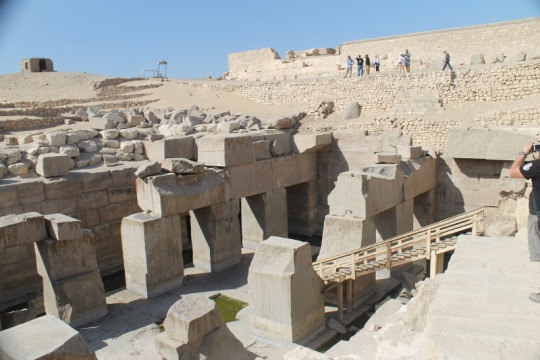
After returning to London, she became a big supporter of the first wave feminist movement and joined the Women’s Social and Political Union. Murray initiated many campaigns to change the culture for women in academia and make it more accessible. At her insistence for inclusivity, the UCL common room was opened to women and later a redesigned room was constructed and named the Margaret Murray Room.
During World War I, she began studying and publishing articles and books on the history of witchcraft in Europe and Folklorism. Eventually, in 1927 she was awarded an honorary doctorate for her work in Egyptology. Throughout her career she wrote several books and many articles on Egyptology, Folklorism and also authored her own autobiography titled “My First Hundred Years” published in the year of her death 1963.
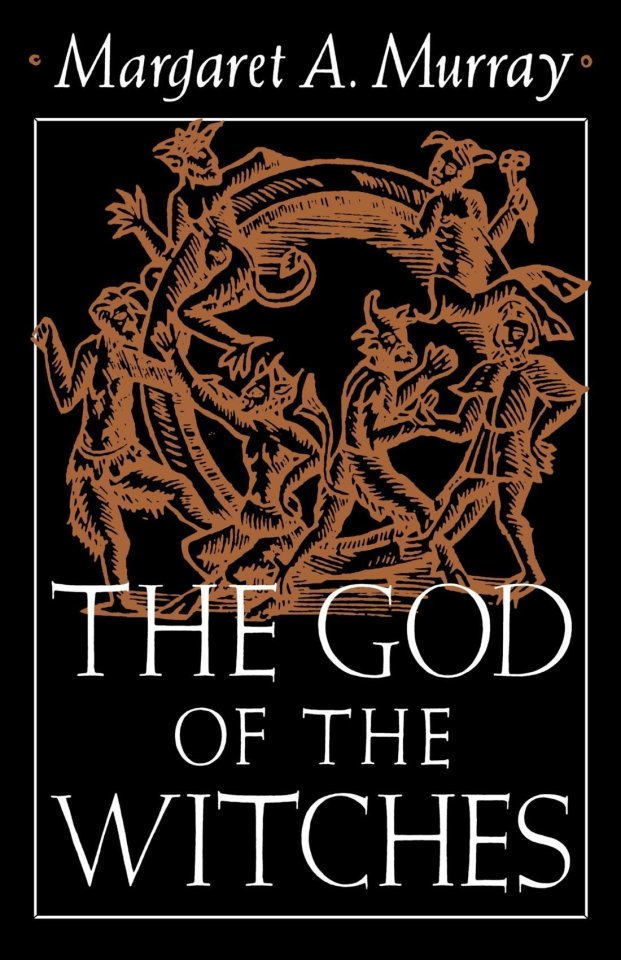
It is challenging for modern day academics to truly comprehend the different era and culture for a woman in anthropology during the late 19th to mid-20th centuries. Although, I am sure many of us agree that the academic climate of today oftentimes has much more progress to make. In any case, Margaret Murray was one of the first women to ‘make it’ within this scientific field dominated by a white men, and her contributions to academia were significant, well known, and respected.
However, this does not mean she was perfect. Much of her academic work and theory, especially in the field of Folklorism, is often criticized. Anthropology has changed quite a bit since Murray first entered the field over 158 years ago, and our views and methods of understanding are extremely different today.
What will not change is Murray’s solidified importance as an academic mind and as a woman in archaeology. She paved the way for other female scholars, and she fought for their advancement and their voices along the way.
Refs:
Drower, Margaret S. (2004). “Margaret Alice Murray”. In Getzel M. Cohen; Martha Joukowsky (eds.). Breaking Ground: Pioneering Women Archaeologists. Ann Arbor: University of Michigan Press. pp. 109–141
Margaret Murray. (n.d.). Retrieved March 16, 2021, from https://www.fembio.org/english/biography.php/woman/biography/margaret-murray/
Margaret Murray. 25 Feb. 2021, en.wikipedia.org/wiki/Margaret_Murray.
“Margaret Murray”. Stories From The Museum Floor, 2021, https://storiesfromthemuseumfloor.wordpress.com/2018/03/02/margaret-murray/.
—————————————————————————
About the podcast: The I Dig It Podcast was created by Alyssa and Michaela in March of 2020. Our goal for this podcast was to provide archaeology enthusiasts with insight into the student perspective of navigating the world of academia and the job market for archaeology and anthropology. Guests on the podcast include people from all different parts of their career, including highschool, undergrad, grad school, post doc, and early career!
Where to Find Us:
Insta: https://www.instagram.com/idigitpodcast/
Twitter: https://twitter.com/IDigItPodcast
Discord: https://discord.gg/T7BPe36
ArchPodNet: https://www.archaeologypodcastnetwork.com/idigit
How to get involved: Sign up to be a guest or to be featured on our social media pages https://linktr.ee/idigitpodcast
621 notes
·
View notes
Photo
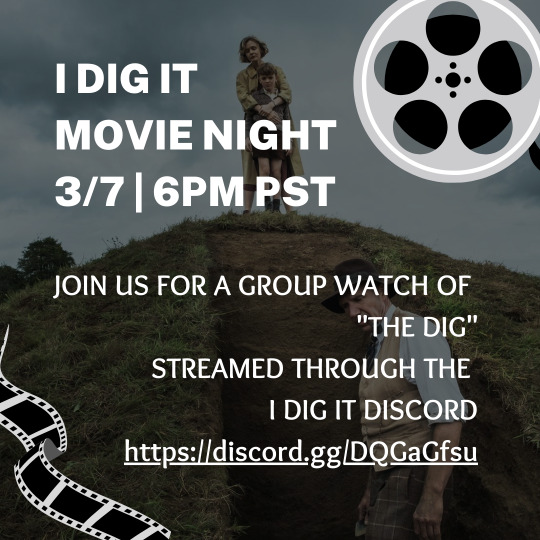
Join us on Sunday for a stream and live react of “The Dig”! 🍿Following the stream we will be recording a podcast episode of our thoughts! 🎬Feel free to join in on the conversation! 😆Discord: https://discord.gg/DQGaGfsu
Where to Find Us:
Insta : https://www.instagram.com/idigitpodcast/
Twitter: https://twitter.com/IDigItPodcast
ArchPodNet: https://www.archaeologypodcastnetwork.com/idigit
Get Involved with I Dig It here ➡️https://linktr.ee/idigitpodcast
8 notes
·
View notes
Text
Check out our new blog page!
Introduction to the I Dig It Podcast Blog!
About the podcast:
The I Dig It Podcast was created by Alyssa and Michaela in April of 2020. Our goal for this podcast was to provide archaeology enthusiasts with insight into the student perspective of navigating the world of academia and the job market for archaeology and anthropology. Guests on the podcast include people from all different parts of their career, including highschool, undergrad, grad school, post doc, and early career!
About the Hosts:

About Alyssa! (she/they): Hello, folx! I’m one of the co-hosts of the podcast and I’m super excited for you to be joining us! I’m a current Ph.D. student in Anthropology (Archaeology track) doing research on the medeival Khmer Empire of Cambodia! My archaeological interests are human-environmental relationships and political ecology, and I enjoy using digital methods for archaeological analysis, such as remote sensing data and GIS. Find my archaeology IG at ✨ @aal.archaeology ✨
About Michaela! (she/her): Hey there! Welcome to the channel! Founder and co-host of the podcast and I’m enthralled to see you finding us! It’s been my dream to create as well as be in a community filled with people of similar passions whether you’re in the field or not. I’m a Digital Archaeologist specializing in VR, AR, 3D modeling with aspirations of creating an online presence for archaeological and heritage sites to be engaged with by all. Currently working in CRM (in California) and always seeking to expand my knowledge.
About Izzie! (she/her): Hello all! I am new to the team as a project assistant helping with fostering engagement by creating blog posts and advertising for the I Dig It podcast! I love spending my time in the dusty basements of museums or bushwhacking out in the field for CRM. I am a future archaeology MA student and my interests are in historical archaeology!
Where to Find Us:
Insta 📷 : https://www.instagram.com/idigitpodcast/
Twitter 🐦 : https://twitter.com/IDigItPodcast
Discord💬 : https://discord.gg/T7BPe36
ArchPodNet: https://www.archaeologypodcastnetwork.com/idigit
How to get involved:
Sign up to be a guest or to be featured on our social media pages ➡️ https://linktr.ee/idigitpodcast
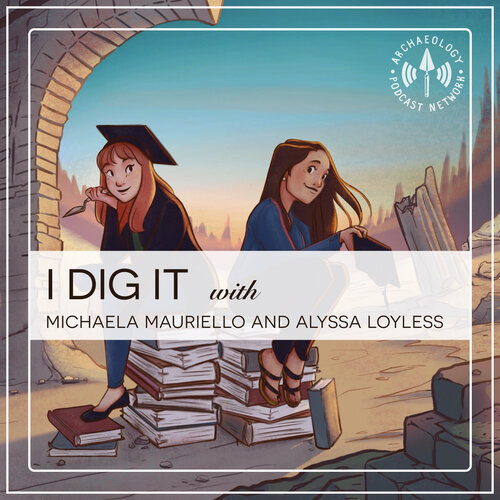
137 notes
·
View notes
Photo
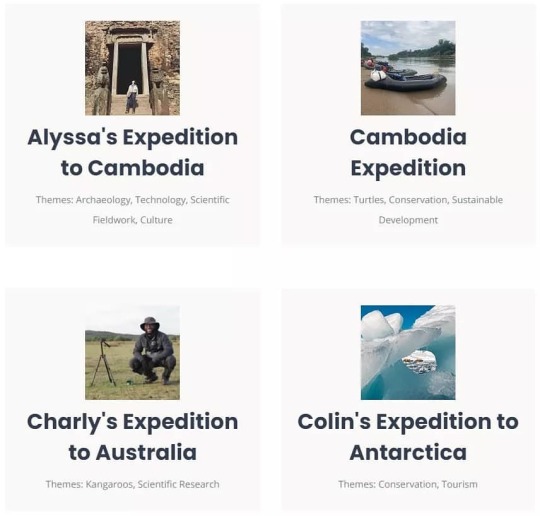
To all of my teacher friends (and friends of teachers)! This past year, while doing research in Cambodia, I volunteered with the Reach the World Explorer Program. This program aims to bring free content to K-12 classrooms, highlighting research and science being done by young explorers around the world. With this program, the classroom has a video call with an explorer while they are in the field, and students have opportunitites to ask questions about the research and how the explorers got to where they are. This is a great opportunity to inspire students to be more curious, and a great opportunity to connect with different regions of the world. Feel free to DM with questions! You can learn more at: Homepage: www.reachtheworld.org Explorer page (where my story is featured): https://athome.reachtheworld.org/explore/ @reachtheworldco #archaeologylovers #archaeologygrad #archaeologist #archaeology #anthropology #research #explorer #education #cambodia #cambodianarchaeology https://www.instagram.com/p/CJrBbXPLbIf/?igshid=jw5vqi3fsis1
#archaeologylovers#archaeologygrad#archaeologist#archaeology#anthropology#research#explorer#education#cambodia#cambodianarchaeology
1 note
·
View note
Note
Do you have any advice for writing the personal statement for a masters degree? im starting my application now but im so anxious and unsure, like i have no idea where to start? thank you sm.
Thanks for the message! First off, congrats on deciding to go to Grad School!
I’m going to recycle some writing from an old post of mine from a year or two ago; please feel free to DM me with any specific questions or if you’d like a fresh set of eyes to review, I’d be happy to give my input! :)
GOOD LUCK & I believe in you! <3
Personal Statement: This is where you tell them why you want to be there and what makes you qualified. Why should they consider you?
Personal Statement Example
1st paragraph, introduce the program and your research interests: I am applying to _____ for admission to the Ph.D. program in [x] with a focus in [y]. My research interests are to explore [x,y,z] in [region of the world], and how this can be visualized through the use of [method/theories].
2nd paragraph, why you’re interested in what you’re doing: I learned the value of [x] through my undergraduate and master’s degree. [x] is appealing to me because [………]. I first became interested in [example of why you’re interested in the topic/what inspires you]. After witnessing this, I began to seek out opportunities to partake in similar research.
3rd and 4th paragraph, what makes you qualified to pursue this degree?: I have many research experiences that qualify my pursuit of a Ph.D. dedicated to using [x]. [Talk about your undergrad experience, do some name-dropping of professors you’ve worked with], [why did these experiences inspire you to take the next step?], [how are you where you are now because of them?]
5th paragraph, what are you doing now?
6th paragraph, why this school in particular?: This is where you name drop the professor you are interested in working with, talk about how their research aligns well with yours by mentioning specific things that they’ve done such as theoretical approaches. What are you interested in doing that would fit well within this program? Are there any facilities on campus that you are particularly eager to work with? Show that you’ve done your research.
7th paragraph, what do you plan to do after you get your Ph.D. from this institution?: With goals of continuing research in ________ and expanding off the networks that I have established in _______, ________’s doctoral program in [x] is the ideal match to further my career as a [x]. The Ph.D. in [x] at _______ allows for _________[reasons why you like the program]. Ultimately, my postgraduate goals are to remain in academia by continuing research and gaining a university faculty position. My foundation in [x] gained in my undergraduate, graduate, and ______experiences have equipped me with a unique set of abilities to offer to ______’s [x] graduate program, and I look forward to the opportunity to exchange ideas with faculty and students alike.
Have your resume and statement looked over by as many eyes as you possibly can. It took me a good 6-10 revisions before settling on something that I liked.
For a link to the previous blog posts:
https://aal-archaeology.tumblr.com/post/190942122354/phd-applications-for-anthropology-humanities
25 notes
·
View notes
Text
Summary of my first term of my Ph.D. at Stanford during a global pandemic and an extremely controversial election year (Anthropology, yr. 1, she/they, 25y/o) with some toggl data analysis
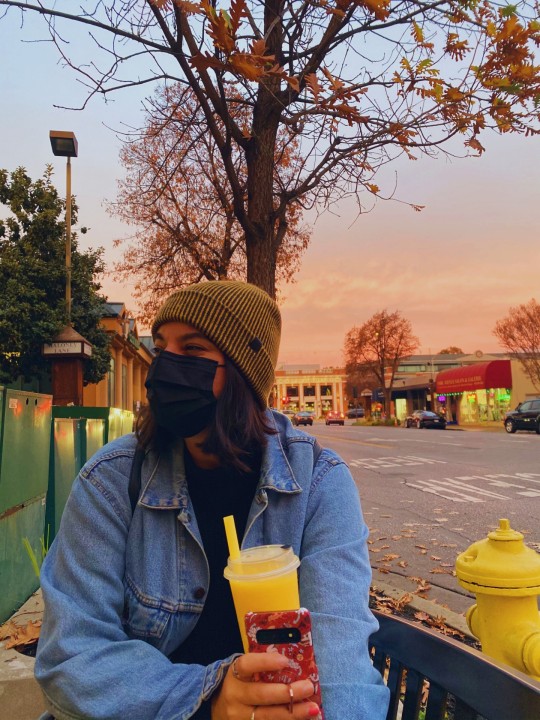
Well this year was a doozy if I don’t say so myself. But we survived it, and its okay if that’s all you were able to do this year because that’s enough.
As an offical 18th grader, I feel like I can speak pretty well to the toxicity of the academic environment. There is always a pressure to be working all of the time, people compete with each other with how few hours of sleep they got, every conversation with fellow students is just listing off all of the different assignemnts you have to do by the end of the week. On top of all of this, this is 2020. So, I decided that this year I’m going to give myself some mental slack.
I decided that this is the year that I’m not going to try to impress anyone. I’m just going to survive and do what I have to do to move onto the next term. I think I did a pretty good job at that for the first term, so I’ll share a bit about what I observed in myself and those in my cohort.
Coming into term one having to choose classes, many of my peers were packing their schedules full of 5 Unit seminars. For those who don’t know, theoretically, a 5 Unit course is supposed to take about 5-6 hours of work outside of class hours. For Stanford Anthropology, most PhD students take as close as they can to 18 credits, and anything over that you have to pay extra for the courses. Taking more courses doesn’t really put you any further ahead in terms of completing your degree, and you’re expected to complete about 45 Units each year for the first two years of the program.
I decided to take 2 seminars (typical), a language course, and a couple filler credits that we are given the option to use if we need 1-3 units to hit 18 total. I, fortunately, tracked every hour spent outside of the classroom working on each course using toggl (i highly reccomend):
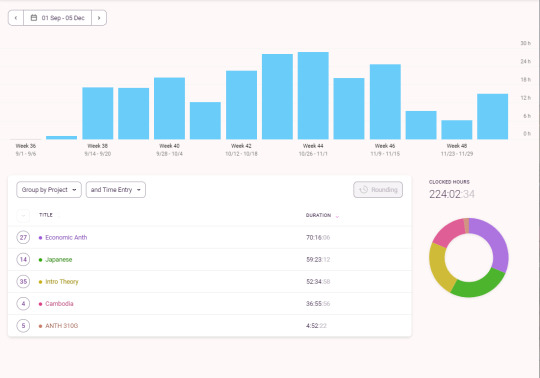
In a typical week, I spent about 5-6 hours/week outside of class on my Anthro seminars, and about 6-7 hours on Japanese. Japanese was a “for-fun” class so I would usually study more of that when I didn’t feel like reading dense archaeological theory.
Toggl was a really cool way to see where I was spending too much, or not enough, time on my classwork. If it was taking me more than 1.5 hours to get through a single article, I knew I was probably spending too much time on it and should move on to the next thing. My goal for the term was to stay true to the 5 Unit idea of 5-6 hours, and not over-work myself.
Toggl was also useful in tracking my mental health throughout the term, as it is very obvious to see when I just was not physically capable of ingesting 400 pages of reading. For example, election week:

Election week was really hard for me, and everyone else in the world honestly. I had various family things I was dealing with, typical existential dread, plus it was week 8-ish of the term when everything was already on fire in terms of workload. For one of my seminars (purple), we had to read a book for the following week which I was able to do the sundar after election day. However, for the days leading up to and surrounding the 4th, the only thing I could mentally handle was mindless Japanese vocab studying. One of my seminars really sufferend this week, and I straight up just didnt show up to the smaller Anth 310G class because I had only read the title of the pdf. Fortunately, I emailed my professor of my Theory class and was like “yo dude I cannot” and he replied that he understood and wouldnt call on me during that day of class.
I didn’t do a whole lot of journalling at all this term, but for this week I just wrote “pain” on most days and then YAY BIDEN at the end of it.
Weekly Schedule
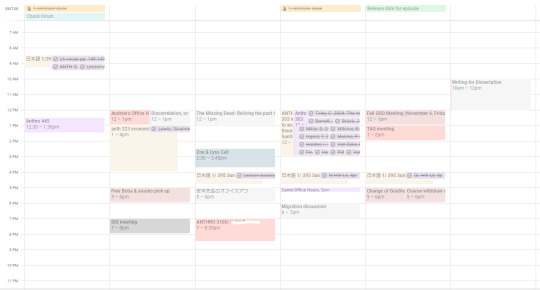
Above is what a typical week looked like, some were a lot lot lot more dense, others not so much, but this was pretty average. Not all things on the calendar are work related, some are extra lectures from visiting professors that sounded interesting, or “Free Boba & Snacks Pick Up” put on by my residence. Monday, Wednesday, and Sunday were my big work days last term, where I didn’t have a whole lot of classes so I would do most of my reading then. On Tues and Thurs I had one 3-hour seminar, and M-F I had a 50 min Japanese class.
I woke up every day around 7am-ish, made a green tea, and sat at the computer to work, filter through emails, etc. On particularily open days I would go grocery shopping, go for bike rides/walks around campus, go buy food/boba.
On class-heavy days, I wouldn’t leave my computer for 8-12 hours, which is extremely ridiculous but that’s the new norm in school in 2020. This kind of stunk because all of the socializing was also on the computer, so even if I wasn’t working I was doing screen related things.
EVERY day I stopped working at 6pm. Rarely did I do readings past 6pm unless I was really slacking somewhere. From 6pm onwards I would do things like play Among Us or League of Legends with my discord friends, eat, watch movies with my partner, etc. And then most nights I would try to be in bed by 12am at the latest.
Social Life
Despite the online nature of things this term, I was suprisingly able to meet a lot of great people on campus. We were all being tested at least once a week, which made in person gatherings with 1-4 people a little less scary, especially when half of the people lived together in one household.
In the first week of school, some of the grad programs put on a “speed friending” zoom event, where I was able to connect with two people really well. We ended up doing a “slow-friending” zoom event afterwards and then created a FB group chat and added all of the people we had met into it. The group ended up being about 15 people, and we would message the group for park hangouts, going to get food, or going on walks on campus. We also had a huge get together in a park for Mid-Autumn Festival, where we sat in a socially distanced circle, chatted, and ate mooncakes.
Most of my socializing came from my online friends, and amongus was a huge savior to my mental health this term wher emy group would play literally every night. I also made a really good friend off of Bumble BFF this term, who I’ve hung out with a good amount for plant shopping and board games.
I’m very fortunate to be in a situation where I can get tested for COVID on a days notice, and very grateful that I could use that to stay a little sane.
My Biggest Accomplishment this term, was not school related. but instead I hit my 365 DAY STREAK on duolingo. This was celebrated with cake. This streak has lived through literal hell and for that I am very proud.
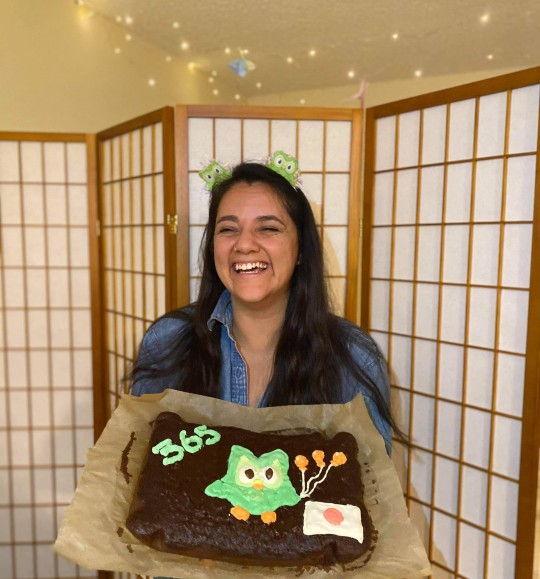
Overall reflection:
This term was super rough, there were a lot of days where I just napped through it and a lot of days where I couldn’t bring myself to do any work. However, I think the courseload that I took was very manageable and I’m going to continue to go light on myself in that regard.
I really liked the boundaries that I set for myself this term, not working after 6pm and making time to do some fun things in the midst of chaos. I never felt like I was too far behind on work, or that I wasn’t doing enough, because I had a literal reminder in front of me that I had already put x amount of hours into something with toggl.
Sometimes in class I would feel like I didn’t know how to productively contribute to conversation, but I think thats a skill that will get better over time and not being so great at it should especially be expected in the first term of a program.
Socially I met a lot of wonderful people who also made me feel more comfortable will myself. I started using She/They pronouns which feel really comforting to me. I made a lot of little origami cranes every time I was feeling sad. I drank a lot of boba. Watched a lot of She Ra. Played a lot of games. It all ended up being okay despite the weight of everything around me.
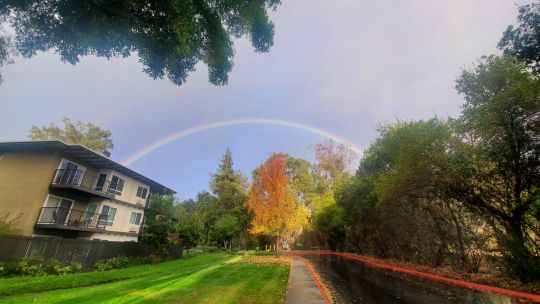
I’m proud of all of you for making it through this year, I know it was really difficult for a lot of people in more ways than it was for me, but we’re still here! Sometimes all you can do it make it to the next day and thats such a big accomplishment on its own.
Please feel free to reach out with any questions about time-management, toggl, phd stuff in general, archaeology, etc! Always happy to help out. :’)
Thanks for reading!
Lyss
#blog#blogging#studyblr#archaeology#archaeologist#anthropology#anthropologist#stanford#stanforduniversity#stanfordphd#phd#phdapplications#education#gradschool#grad student#digital archaeology#cambodian archaeology#imposter syndrome#day in the life#gradblr#get to know me
45 notes
·
View notes
Text
Calling all Archaeologists! (Enthusiasts-Highschool-University-Career!)
If you’re an Archaeologist/Anthropologist in any stage of your career, please join the I Dig It discord server! https://discord.gg/T7BPe36
This community of archaeologists and archaeology enthusiasts includes people from all corners of the world and many different sub fields of archaeology!
Here you can ask specific questions to the community about things like: fieldwork opportunities, undergrad/grad school, jobs on the market, conferences, as well as join in on Lectures and Conferences that are posted in the chats.
This discord started as a chat for our Podcast: I Dig It, which can be found at archaeologypodcastnetwork.com
https://discord.gg/T7BPe36
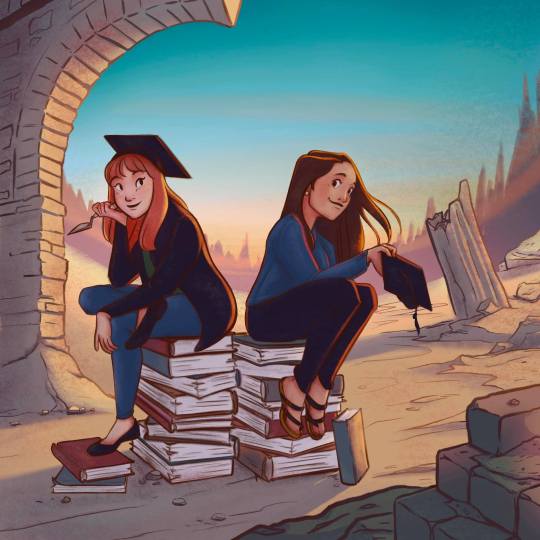
#archaeology#archaeologist#archaeologists#anthropology#anthropologist#digitalarchaeology#archaeologypodcast#podcast#Egyptian Archaeology#archaeology jobs#archaeoastronomy#archaeotech#research#studyblr#education#university#humanities#grad school#phd#phd programs#archaeological research#fieldschool#archaeological field tech#archaeological field school#archaeological theory#cultural heritage#cultural resource management#culturalresourcemanagement#culture studies
112 notes
·
View notes
Text
Nov. 3
doing phd in a global pandemic on zoom in the midst of civil unrest in america during an election year at the risk of facism and threat to democracy is just a little overwhelming
hope everyone can remain safe and healty (both physically and mentally). we’ll get through this somehow!
my dm’s are open to anyone who needs them <3
Lyss
8 notes
·
View notes
Text
Grad Students going back to school this Fall!
What has your university told you about the upcoming term with COVID? Will you be on campus? Online?
Mine (North America) has not made any final decisions yet, but it looks like undergrad will be online and grad school students will be on campus? Thoughts?
Edit** 5/27 update: We were sent a housing application yesterday
#discussion#gradschool#PhD#school#university#undergraduate#undergrad#university student#post doc#doctor of philosophy#studyblr#gradblr#education#grad school#anthropology#archaeology#student
114 notes
·
View notes
Video
Often academia & life in general puts you in some mentally tough situations. What are some ways in which you've struggled? How did you manage? What came afterwards? Listen to us chat about our difficulties in academia on Episode 3! . . #idigitpodcast #podcast #academia #mentalhealth #education #highereducation #research #gradschool #grad #archaeology #fulbright #anthropology #archaeologist #archaeologists https://www.instagram.com/p/CANepC_grmh/?igshid=33vu4wytdgfl
#idigitpodcast#podcast#academia#mentalhealth#education#highereducation#research#gradschool#grad#archaeology#fulbright#anthropology#archaeologist#archaeologists
2 notes
·
View notes
Text
In honor of Mental Health Awareness month, we've recorded a podcast episode titled "Sad Grad Hour" talking about our worst periods in academia and research, and comment on what we learned from these experiences and how we got through them.
Every feeling you have is valid, especially during this time of social distancing, join us in becoming aware of how your environment is affecting your mental health.
You can contribute to the discussion by sharing your stories or advice you want to give to others! [email protected]
Twitter & Ig: @idigitpodcast
Join the discord at: https://discord.gg/J8TXnr
#academia#mental health#mental health awareness#podcast#archaeology#archaeologist#archaeologists#anthropology#anthropologist#student#grad student#gradblr#studyblr#stress#education#archaeology student#history#humanities#undergrad#grad school#phd#archaeology podcast
1 note
·
View note
Text
SEND ME YOUR ARCHAEOLOGY ORIGIN STORIES!!!
Hey everyone! Happy to annouce that the I Dig It Podcast has signed on with the Archaeology Podcast Network.
One segment of our show is reading YOUR stories of how you got interested in archaeology, any fun stories you have in the field, any questions you may have, or any advice you want to give to the listeners.
Stories are important because they often provide guidance and inspiration for others considering the field or looking to renew their passion for the field. Stories also bring awareness to the variety of subfields in Anthropology and Archaeology.
So send them in! either DM me here or submit to [email protected]
Currently, you can listen to the podcast here:https://i-dig-it.simplecast.com/episodes/001-you-me-archaeology-ya-dig
in the future, we will be posting through the Archaeology Podcast Network!
I look forward to hearing your stories!
<3 Lyss
#archaeology#archaeologist#archaeology grad#archaeology student#history#historic#anthropology#anthropologist#anthropology student#studyblr#podcast#archaeology podcast#spotify#archaeology podcast network#masters student#phd student#gradblr#digital archaeologist#education#educational#educational podcast#archaeology jobs
4 notes
·
View notes
Video
Calling All Archaeologists! Send us your stories!
Our first episode has been released!
We’re calling on archaeologists to send us their stories about how they entered the field. What is the moment when you decided to be an archaeologist? What are some of your favorite memories? What are some of your least favorite memories? Advice? Concerns? Questions?
Send me a DM here, on our social medias @Idigitpodcast, or at [email protected]!
Check out the I Dig It Podcast here:
https://i-dig-it.simplecast.com/episodes/001-you-me-archaeology-ya-dig
https://open.spotify.com/show/7aDdw0l0S4ZU483ORcMFBw
Join Our Discord:
https://discord.gg/T7BPe36
#archaeology#archaeologist#archaeologists#archaeology podcast#podcast#discord#archaeology grad#humanities#education#studyblr#digital archaeology#heritage#digital heritage#grad school#phd#undergrad#undergraduate#student#archaeology student#UK#US#united kingdom#heritage podcast#history#archaeology jobs#research#spotify#anthropology#anthropology student#phd anthropology
8 notes
·
View notes
Photo
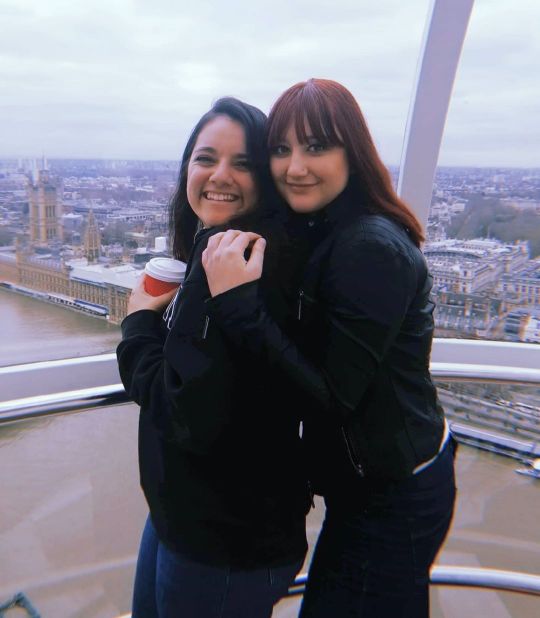
Hello! Alyssa & Michaela here! Welcome to our Instagram for our new podcast "I Dig It." We've decided to create this podcast to document the journey through academia in the fields of Archaeology and Anthropology. Join us as we introduce perspectives from all stages of the profession, from undergrad to career. First episode has already been recorded and will be posted soon on Spotify @ I Dig It! Check out our discord (link in bio) or shoot us a message to contrubute to the discussion! . . #archaeologypodcast #podcast #archaeology #anthropology #heritage #spotify #archaeologist #archaeologists #digitalarchaeology #discord #humanities #research #digitalheritage #academia #masters #phd #undergraduate #university . . @uoyarchaeology https://www.instagram.com/p/B_VnUnoHUxe/?igshid=10vc40stn07pd
#archaeologypodcast#podcast#archaeology#anthropology#heritage#spotify#archaeologist#archaeologists#digitalarchaeology#discord#humanities#research#digitalheritage#academia#masters#phd#undergraduate#university
18 notes
·
View notes
Text
Calling all Archaeologists!
We have created a discord for archaeologists in all stages of their career, from high school - undergrad - masters - phd - post doc - career
https://discord.gg/vghhDE9
It features channels including:
About You: “check me out” for cool things you’ve done in the field, field photos
Fun Media: bar archaeology, reading reccomendations
Academic: undergrad, gradschool, post doc, grant applications, resume and cvs
Career: jobs, academic jobs, fieldwork opportunities
Podcast: contribute to our podcast!
Hope to see you there!
#archaeology#archaeologist#digital archaeology#biological archaeology#podcast#discord#anthropology#anthropology student#phd anthropolgy#research#archeologist#studyblr#archaeology student#history#historicarchaeology#paleolithic
111 notes
·
View notes
Text
Archaeology Podcast in the Making!
A Podcast is in the works!
Here is a list of topics to cover, please let me know if there is anything else you’d like to know! It does not have to be exclusive to archaeology, and can also generalize education/ grad school/ etc.
Feel free to contribute any other ideas as well! Or if you are interested in joining in on the production! I’ve started a community of mostly archaeology friends on Discord, let me know if you’d like to hang out!
-What is Archaeology? So you wanna be an archaeologist?
-Different types of Archaeology, Different Professions in Archaeology
-Undergraduate Degrees in Anthropology and Archaeology
-Networking through your undergrad degree
-Grant and Scholarship applications
-Time Management of coursework
-Pros and Cons of a masters degree in Anthropology/Archaeology
-Grad School Applications for Masters Degrees (US vs. UK)
-Favorite things about our time in UK Masters degree
-Jobs in Archaeology outside of Academia
-C.V. for Humanities degrees and Academic Job searching
-Research in Archaeology between degrees
-Networking after and during your degree
-Ph.D. in Archaeology/Anthropology? Pros and Cons -Ph.D. Applications
-Choosing your program
-After Ph.D
#archaeology#humanities#gradschool#undergrad#degree#research#anthropology#phd programs#phs#masters#digital archaeology#archaeologist#podcast#archaeology podcast#academic#academia#studyblr#ivy league
35 notes
·
View notes